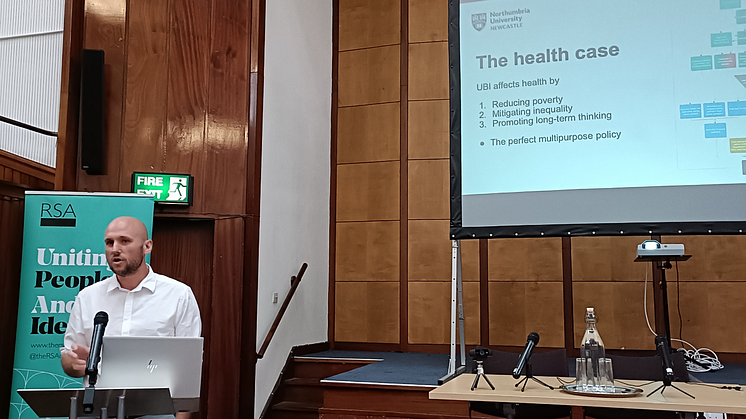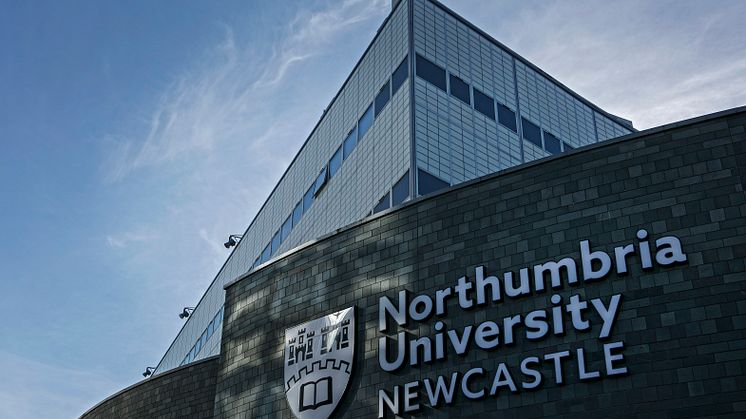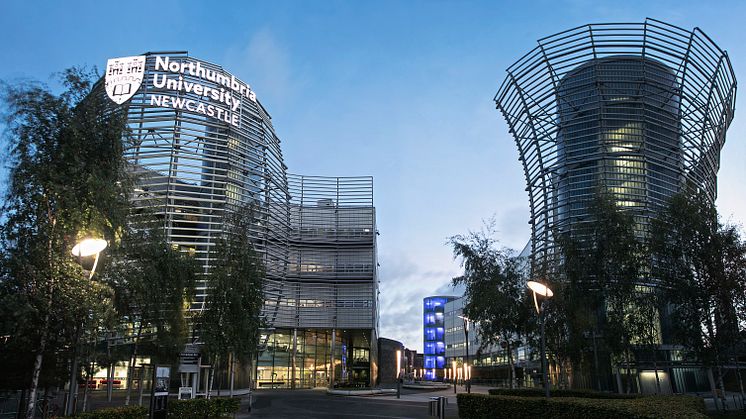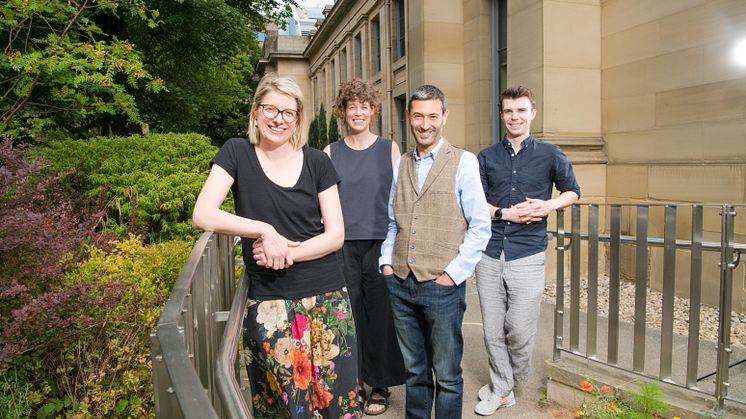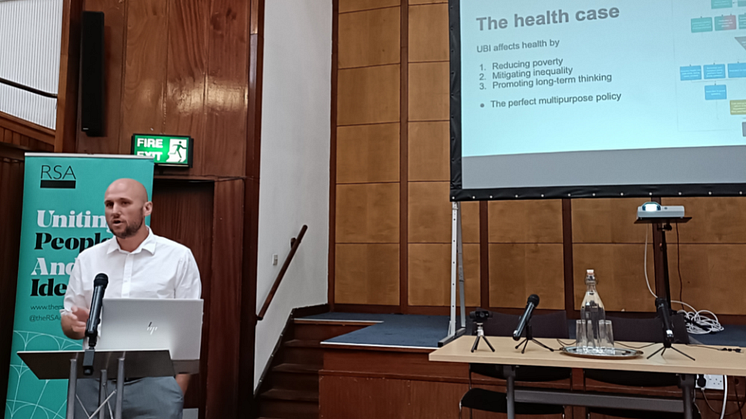
Press release -
Northumbria Professor gives keynote academic address at Basic Income North conference
An interim research report by the royal society for arts, manufactures and commerce (RSA), examining the public health case for Universal Basic Income, endorsed by the First Minister for Wales, has been officially launched at the Basic Income North conference by Professor Matthew Johnson.
A Professor of Politics at Northumbria University who is working with a number of research partners to compile a body of evidence on the impacts of a regular government-backed payment for all citizens, Professor Johnson gave the keynote academic address at the conference held in Manchester today.
The Basic Income North Conference 2022 was organised with support from the RSA, and included keynote political addresses from Mayor of Greater Manchester, Andy Burnham and Baroness Natalie Bennett, former Leader of the Green Party.
First Minister of Wales, the Rt Hon Mark Drakeford, has supported the interim Royal Society of Arts (RSA)publication Levelling the mental health gradient among young people: How Universal Basic Income can address the crisis in anxiety and depression, with a powerful foreword. In it, he also outlines the trial introduced by the Welsh government earlier this month – a scheme to provide care leavers with a Basic Income.
Mr Drakeford writes: “Over the course of this trial, we will be able to test the many claims made about Basic Income, but we hope it will support a national consensus that Basic Income has a central role to play in addressing inequality and in ensuring our young people have the same opportunities to fulfil their potential as each other.”
Projections developed for the interim report by analysing data collected as part of the UK Household Longitudinal Study, involving 40,000 homes in the United Kingdom over a 10-year period, suggest the introduction of a Universal Basic Income could see the number of 16 to 24-year-olds accessing mental health support reduce by between 29,000 and 46,000 every year.
This would result in a saving of between £99m and £160m per year, relating to just anxiety and depression treatment in one age group – enough to pay for between 1,530 and 2,472 additional hospital-based mental health nurses each year.
Other key findings outlined in the report include:
- A Universal Basic Income is affordable
- Money directly affects mental health
- A Universal Basic Income is impactful as a preventative public health strategy
- A Universal Basic Income is popular
- Additional needs of disabled people need to be recognised via a “UBI+”
- Trials can be evaluated much more effectively to understand mental health impact
“What this interim report tells us is that it’s already clear from our data analysis that income does have a causal effect on mental health,” said Professor Johnson. “It’s also clear that increasing people’s income through the introduction of a Universal Basic Income would be an effective public health strategy.
“For whatever reason, many politicians have assumed the idea of a Universal Basic Income is unpopular. But what we have also found is, when it’s explained to people correctly that it would ensure social security for hardworking people with an acceptable standard of living, it is actually a very popular policy – especially in those parts of the country targeted for Levelling Up.”
The research was funded by the Wellcome Trust as part of a project called Assessing the prospective impacts of Universal Basic Income (UBI) on anxiety and depression among 14-24-year-olds. It serves as a pilot study for a much broader, long-term examination of the role of Universal Basic Income as a public health measure.
The project began in August 2021 and has led to a number of articles either published or under review, as well as two reports published by Basic Income Conversation powered by Compass.
Tackling Poverty: the power of a universal basic income, was released in May and Winning the vote with a universal basic income: Evidence from the 'red wall', outlining that idea that a Universal Basic Income is a vote winner in traditional ‘red wall’ constituencies, is currently being finalised. Professor Johnson will present the findings of the second Basic Income Conversation powered by Compass report at an online event in September.
As well those at Northumbria University, the research team includes researchers from the University of York, the University of Bristol, the University of Oxford, the University of Liverpool, Newcastle University and Landman Economics.
The new RSA publication serves as an interim report summarising findings to date in advance of the end of project RSA report, which will be launched in London in September. All publications linked with the research on the public health case for a universal basic income can be found on the project website.
Visit thersa.org to read the interim report, Levelling the mental health gradient among young people: How Universal Basic Income can address the crisis in anxiety and depression, in full.
Notes to editors:
About Northumbria University
Northumbria is a research-intensive modern university with a global reputation for academic excellence. Find out more about us at www.northumbria.ac.uk. Please contact our Media and Communications team at media.communications@northumbria.ac.uk with any media enquiries or interview requests.
About the RSA
The royal society for arts, manufactures and commerce (RSA) is a global network of more than 30,000 entrepreneurs, educators, artists, and innovators working together for the advancement of society, the economy, and the environment.
The RSA has been at the forefront of significant social impact for over 260 years. Our proven change process, rigorous research, innovative ideas platform and diverse global community of over 30,000 problem solvers, deliver solutions for lasting change.
Legally, the Royal Society for the Encouragement of Arts, Manufactures and Commerce (‘RSA’) is a Royal Charter Company and registered charity in England and Wales (charity number 212424) and in Scotland (charity number SC037784).
Topics
Categories
Northumbria is a research-intensive modern university with a global reputation for academic excellence. Find out more about us at www.northumbria.ac.uk --- Please contact our Media and Communications team at media.communications@northumbria.ac.uk with any media enquiries or interview requests ---








